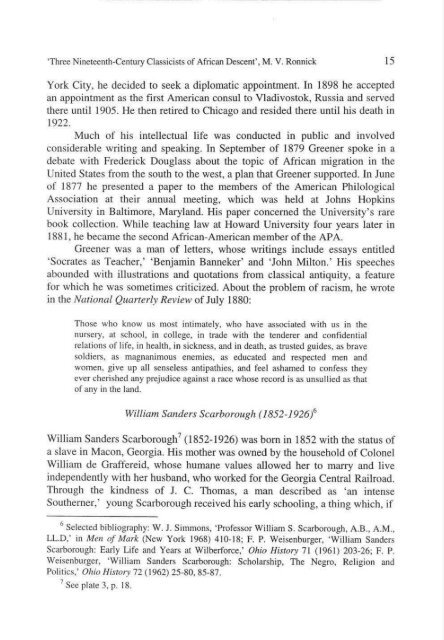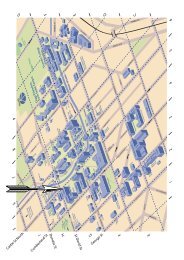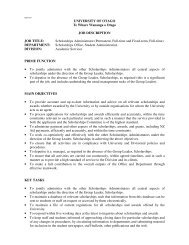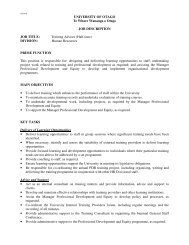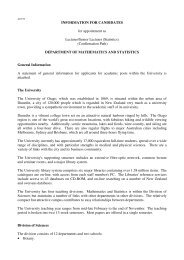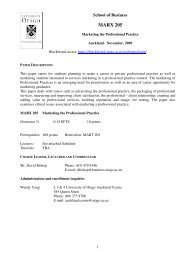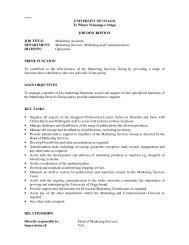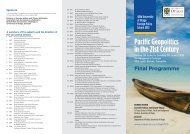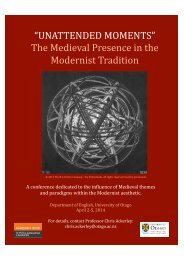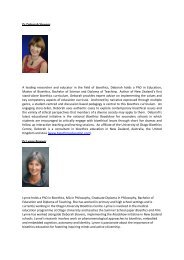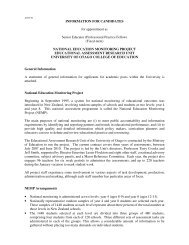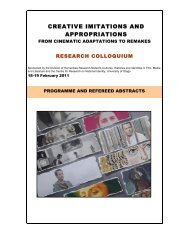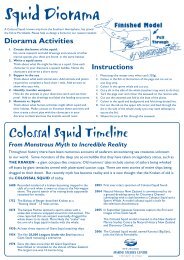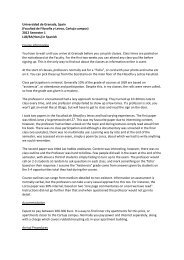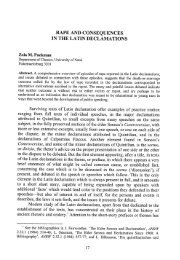scholia - University of Otago
scholia - University of Otago
scholia - University of Otago
Create successful ePaper yourself
Turn your PDF publications into a flip-book with our unique Google optimized e-Paper software.
'Three Nineteenth-Century Classicists <strong>of</strong> African Descent', M. V. Ronnick 15<br />
York City, he decided to seek a diplomatic appointment. In 1898 he accepted<br />
an appointment as the ftrst American consul to Vladivostok, Russia and served<br />
there until 1905. He then retired to Chicago and resided there until his death in<br />
1922.<br />
Much <strong>of</strong> his intellectual life was conducted in public and involved<br />
considerable writing and speaking. In September <strong>of</strong> 1879 Greener spoke in a<br />
debate with Frederick Douglass about the topic <strong>of</strong> African migration in the<br />
United States from the south to the west, a plan that Greener supported. In June<br />
<strong>of</strong> 1877 he presented a paper to the members <strong>of</strong> the American Philological<br />
Association at their annual meeting, which was held at Johns Hopkins<br />
<strong>University</strong> in Baltimore, Maryland. His paper concerned the <strong>University</strong>'s rare<br />
book collection. WbiJe teaching law at Howard <strong>University</strong> four years later in<br />
1881, he became the second African-American member <strong>of</strong> the APA.<br />
Greener was a man <strong>of</strong> letters, whose writings include essays entitled<br />
'Socrates as Teacher,' 'Benjamin Banneker' and 'John Milton.' His speeches<br />
abounded with illustrations and quotations from classical antiquity, a feature<br />
for which he was sometimes criticized. About the problem <strong>of</strong> racism, he wrote<br />
in the National Quarterly Review <strong>of</strong> July 1880:<br />
Those who know us most intimately, who have associated with us in the<br />
nursery, at school, in college, in trade with the tenderer and confidential<br />
relations <strong>of</strong> life, in health, in sickness, and in death, as trusted guides, as brave<br />
soldiers, as magnanimous enemies, as educated and respected men and<br />
women, give up all senseless antipathies, and feel ashamed to confess they<br />
ever cherished any prejudice against a race whose record is as unsullied as that<br />
<strong>of</strong> any in the land.<br />
William Sanders Scarborough ( 1852-1926l<br />
William Sanders Scarborough 7 (1852-1926) was born in 1852 with the status <strong>of</strong><br />
a slave in Macon, Georgia. His mother was owned by the household <strong>of</strong> Colonel<br />
William de Graffereid, whose humane values allowed her to marry and live<br />
independently with her husband, who worked for the Georgia Central Railroad.<br />
Through the kindness <strong>of</strong> J. C. Thomas, a man described as 'an intense<br />
Southerner,' young Scarborough received his early schooling, a thing which, if<br />
6 Selected bibliography: W. J. Simmons, 'Pr<strong>of</strong>essor William S. Scarborough, A.B., A.M.,<br />
LL.D,' in Men <strong>of</strong> Mark (New York 1968) 410-18; F. P. Weisenburger, 'William Sanders<br />
Scarborough: Early Life and Years at Wilberforce,' Ohio History 71 (1961) 203-26; F. P.<br />
Weisenburger, 'William Sanders Scarborough: Scholarship, The Negro, Religion and<br />
Politics,' Ohio History 72 (1962) 25-80, 85-87.<br />
7 See plate 3, p. I 8.


